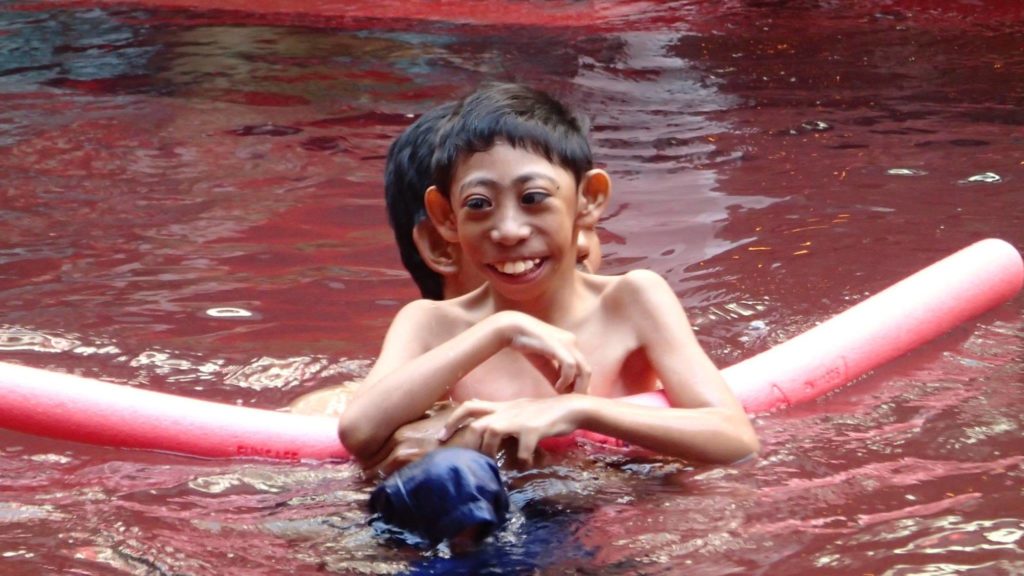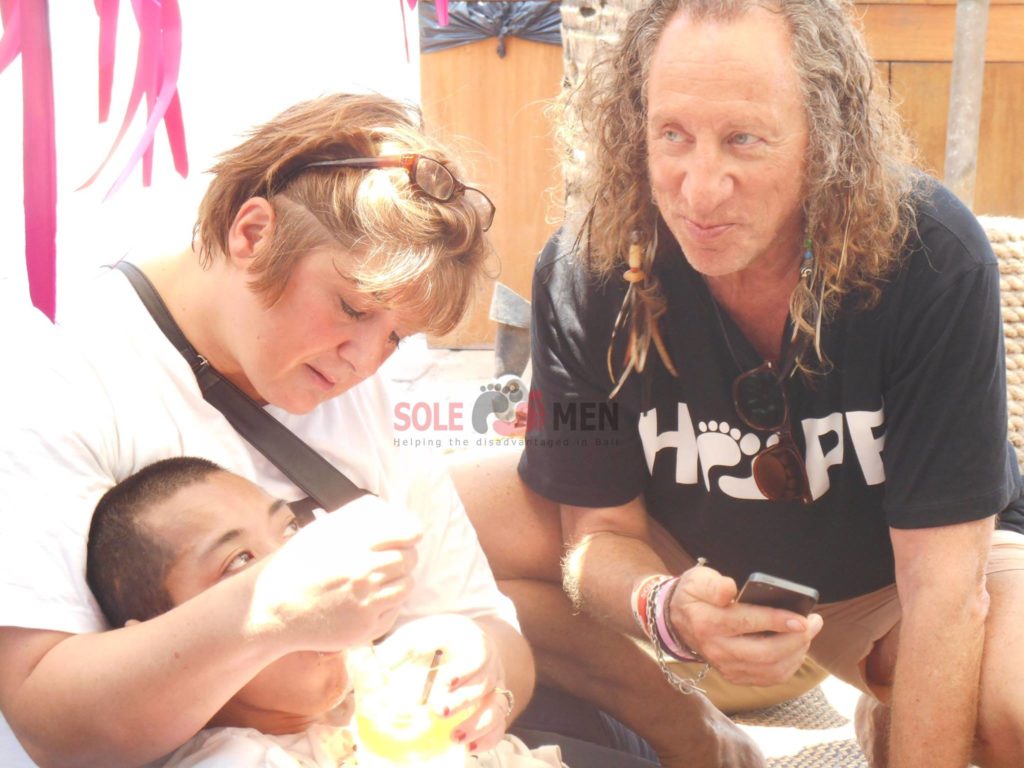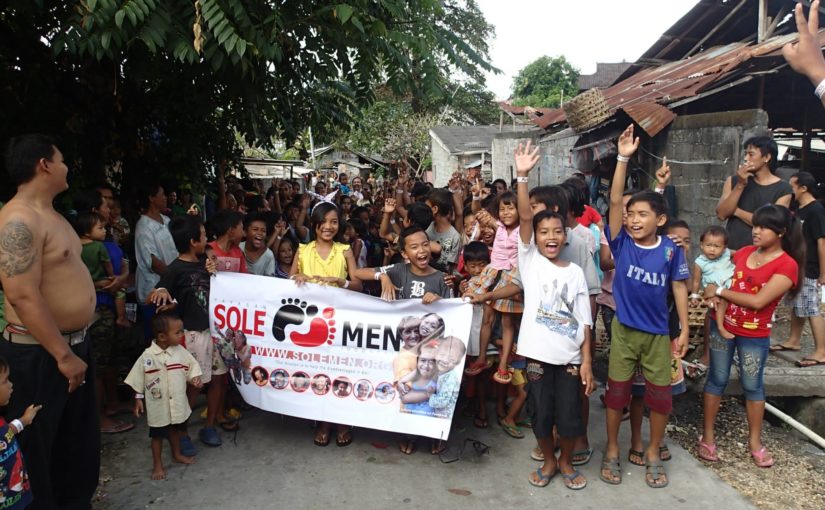Sarah Chapman, a nurse in the UK, has travelled through Bali when she came around a young local girl, skinny and sick, in a remote mountain village. The girl, eight years old and 6.4 kilos, was too short and too skinny for her age, and obviously had severe health issues. Sarah knew she had to do something to save the girl’s life. She posted a picture on facebook, asking people what to do.
This is how Sarah met Robert Epstone, the co-founder of Yayasan Solemen Indonesia.
With the help of Robert, the young girl was taken to a hospital, and her health improved. She put on more weight, and was close to the 12 kilos she needed for a life-saving operation, but she passed away before the surgery was done. Sarah still had tears in her eyes when she told us the story, and so did we.
Sarah has now been working for Solemen for over three years, and could give us a very interesting insight into Solemen’s work when we met her in Kuta. Solemen was formed in 2010 with the goal to support the disadvantaged in Bali. Robert declared his intention to be barefoot until Solemen had raised one million US Dollars. The reason for being barefoot is “to be in solidarity with those who don’t have a choice to wear or not wear shoes,” he says.
Today, Solemen works with 140 children and adults, and mainly supplies medical care for people in the remote areas of Bali. Nearly every day, Sarah and her outreach team are out on the field, taking care of people in need. She told us so many incredible stories, most with happy ends but some without.

If you want to read more about the situation of the mentally and physically disabled in Bali, click here.
Sarah told us the story of a man who has been living in a cage for two years. The man is mentally ill, and has repeatedly threatened his family and neighbours with a knife in order to get coffee and cigarettes. After people became scared of him, the family decided that there was no other choice, but to put him in a cage. When Solemen found the man, he was barely talking or moving. They took him to a hospital, got rid of the cage and renovated his house. The man now takes medication, and has returned to his home village.
Another sad story with a happy ending are two disabled boys, Komang and Wayan, who have been kept locked away in their house by their families. Their parents told them that they will die, if they leave the house. Solemen found the family in extreme poverty, provided food, clothes and regular therapy for the boys. They also provided customised wheelchairs for the boys, and created a permaculture garden to provide food for the family. The boys now leave the house and are happy to spend time ouside in their wheelchairs.
Solemen works with children and adults with many different kind of diseases. Hydrocephalus, skin diseases, mental and psychological patter. Many of the diseases are treatable, but the lack of education and the difficult access to medial infrastructures in remote areas transform diseases into fatalities.
Sarah is part of the Bali outreach team. Every day, they go into the remote areas, talk to the Banjars (the heads of village) and try to help people that need help. When possible, they are treated on the field, but in many cases it is necessary to transport the patients to hospitals in urban areas.
After the patient has been treated, Solemen tries to keep contact with the people, mainly via phone calls. Sarah said that once the trust is established, it is easier for the patients to ask for help again if they or somebody they know need it.

In the long term, Sarah dreams about a medically equipped car and hope that Solemen will eventually be able to pay a full time doctor. Further, she stresses education in the villages, and a better access to medical care in the remote areas. If you want to support Solemen, you can make a donation to the NGO directly here.

